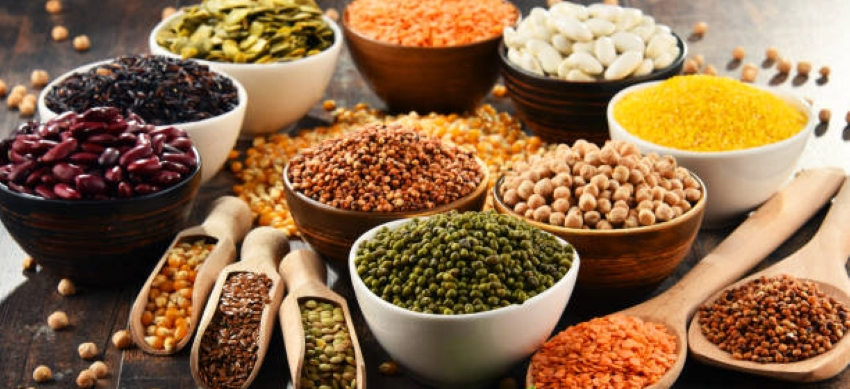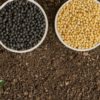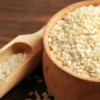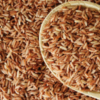For a healthy lifestyle, Going back to nature has become a global trend. Organic farming is a development method that promotes the protection of soils, humans, and habitats, using organic pesticides and preventing the use of antibiotics and growth hormones,
According to the International Federation of Organic Agriculture Campaigns- IFOAM, emerging data indicate that many diseases like cancer, skin diseases, and lifestyle diseases may be due to eating foods loaded with chemicals/ pesticides. This knowledge is forcing consumers to look for safer choices of organic food products.
Not just organic vegetables or fruits, but pulses, grains, and even spices are grown organically nowadays and are in high demand.
Beans (peas, lentils, and beans) have been consumed for at least 10000 years and are among the most widely used foods worldwide. Pulses are grown worldwide in a variety of ways, making them important economically as well as nutritionally.
Since pulses are a significant part of the majority of the world’s population, switching to consuming organic pulses makes sense.
Let us look at a few reasons why organic pulses and grains need to be included in your diet and how they can help you improve your health.
Aids to a healthy digestive system
Organic pulses are rich in fiber content, which eases digestion and keeps the bowel functioning normally.
Good for your heart
Regular consumption of organic pulses reduces the risk of cardiovascular diseases due to their high fiber content. Pulses also improve heart health by reducing cholesterol levels. Moreover, they contain a high amount of potassium, which helps in lowering your blood pressure.
Control of diabetes
They are rich in fiber and have a low glycemic index, making them particularly beneficial to people with diabetes by helping to maintain healthy blood glucose and insulin levels.
Protein-rich
Are you thinking of including protein in your daily menu? Organic pulses are the best choice. Pulses provide protein and fiber. Consuming just half a cup of beans or legumes with grains and other vegetables in your diet can do wonders for your protein intake.
An important source of Vitamins and Minerals
Organic Pulses are a significant source of iron, zinc, folate, and magnesium. Folate is a B vitamin that is essential to produce and maintain new cells. Organic pulses are rich in folate, and the consumption of pulses during pregnancy is ideal for rapid cell growth during infancy.

Aids in weight loss
Pulses like chickpeas, lentils, and peas help with weight loss when included in your diet. This is due to their effect on fullness. Dieters who consume organic pulses can expect to maintain a healthy weight as they are high in fiber and protein.
Better Taste
Compared to conventional pulses, the process of organically producing pulses often gives them a better taste. The presence of high antioxidants in organically grown produce is commonly thought to be the reason behind it.
In contrast, pulses produced with the assistance of chemicals tend to degrade in quality and affect the taste of the product.
Therefore, including pulses in the diet is a healthy way to meet dietary recommendations and reduces the risk of several chronic diseases. A switch from conventional food to organic food is a great idea. Because your health is of the utmost importance, you should add organic foods and organic pulses to your diet without hesitation
Since organic foods offer so many health benefits, it’s high time you start eating them.
@ZZOrganic, we aim to improve awareness regarding good food habits, make people healthier, and help them connect with nature. Discover our wide range of organic pulses and start living a healthier lifestyle.




 Organic food is safer to ingest and more nutritious. Still, it also benefits the environment and society, so choosing organic is the best choice. Avoiding chemicals and pesticides is beneficial for the environment and our farmers’ livelihoods. This is the only one of the numerous ways that we can make a difference in terms of pollution reduction.
Organic food is safer to ingest and more nutritious. Still, it also benefits the environment and society, so choosing organic is the best choice. Avoiding chemicals and pesticides is beneficial for the environment and our farmers’ livelihoods. This is the only one of the numerous ways that we can make a difference in terms of pollution reduction.



